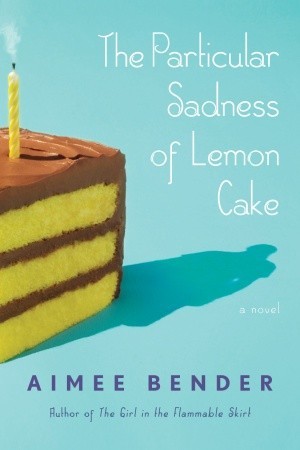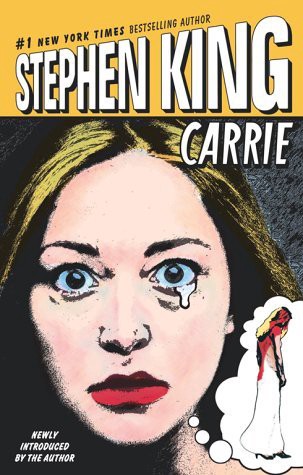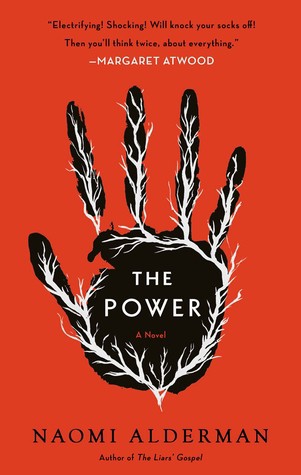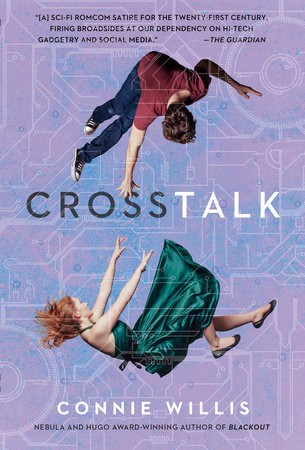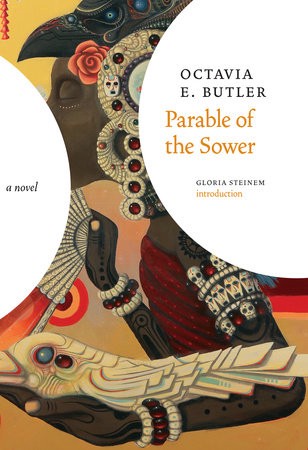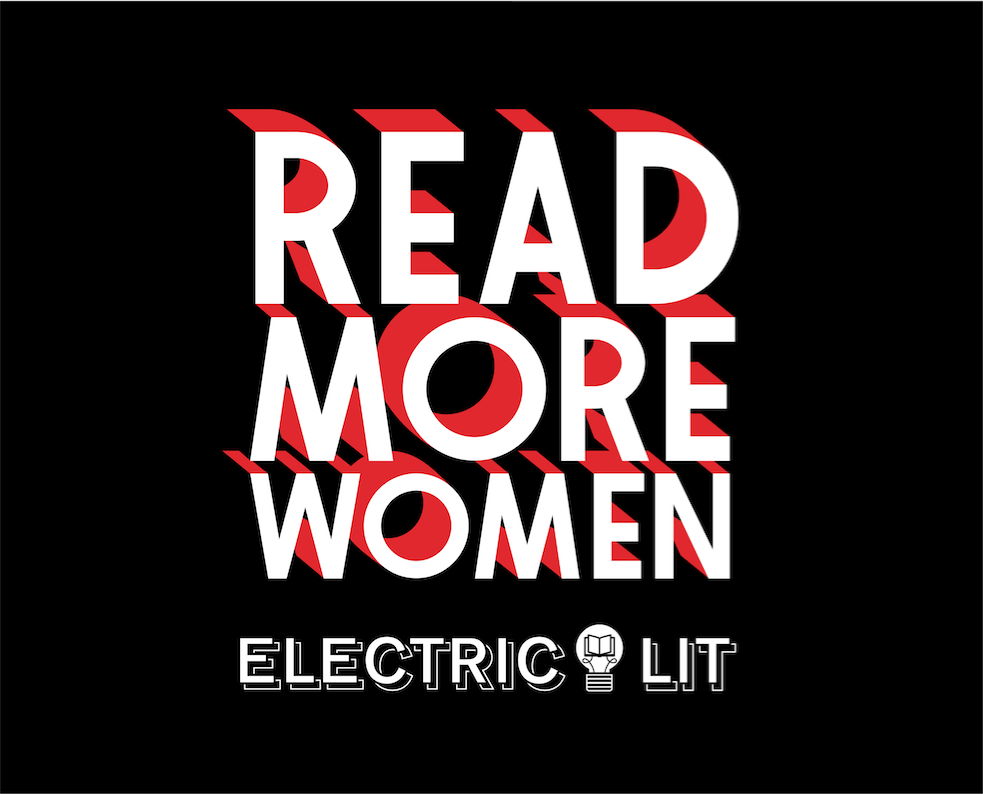Reading Lists
6 Books About Women With Superpowers
Cai Emmons, author of ‘Weather Woman,’ on women discovering and activating a range of wildly different powers

I carry a pencil case in my purse that says on its side: “I’m a girl, what’s your superpower?” When I first came into possession of this case I loved it, but now every time I take it out I ponder the message. Is it condescending? Shouldn’t it say “woman” instead of “girl”? And another even more important question: Is there something inherently powerful about being a woman? I believe so. We have an energy that rumbles within us and sets us apart, often making us threatening to men.
Often we don’t go forth in the world believing we have any power at all, regardless of our talents. It takes many of us most of a lifetime to recognize our strengths and capitalize on them. A 2017 internet poll I ran across recently said that the superpower most often chosen by women is invisibility. Really? Aren’t we already largely invisible?
The disconnect between the astonishing nature of female power and our reluctance to assert ourselves in the world makes stories about women with superpowers particularly compelling. They provide us with a template for thinking about female power in general. What does it look like? Is it different from male power? Should it be different? These are pressing questions in a country that has never elected a woman for president.
In superpower stories we see women discovering and activating a range of wildly different powers, often synonymous with uncovering their true identities. For these characters, there isn’t always a relationship between having a superpower and having power in the world. Some of these fictional women come to prominence, kick butt, and save (or destroy) the world. Others deploy their power secretly, never attaining or wanting public status. Their power functions, story-wise, as a kind of divining rod uncovering a particular aspect of the world. All these stories provide excellent fodder for rumination about strength and power.
Women with superpowers abound in science fiction and fantasy novels where they use their powers to save civilization from evil. The rarer kind of female superpower story features an ordinary character operating in a largely recognizable world — she simply happens to be navigating that known world with a superpower. I was first drawn to stories of this nature when I was a child and read The Trouble with Jenny’s Ear, by Oliver Butterworth. After an illness Jenny, an ordinary girl, develops the ability to read other people’s minds. She goes on a quiz show and amazes the world by winning repeatedly, until her power fades. I love this book for the way the adults are revealed to be somewhat ridiculous and for the humble way Jenny embraces her fleeting talent. As an adult I’ve retained an interest in the way such stories reveal their characters, as well as the worlds they live in. Here are six novels that highlight an array of approaches to women with superpowers.
The Particular Sadness of Lemon Cake by Aimee Bender
In this Aimee Bender novel for adults, a young girl, Rose, develops the capability to detect, in the food she eats, the emotions of the person who has prepared it. This capability allows her to be privy to the interior landscapes of those around her, in particular to the adults. It is a sensitivity that makes Rose compassionate, as she is aware of the loneliness and dissatisfactions of others, but the capability is often a burden. She unwittingly becomes aware of her parents’ messy emotions leading to their divorce. She can similarly intuit the emotions of friends and strangers, and the results are also not happy. This is a deeply psychological novel that explores what it means to be an individual who is highly attuned to others. Ultimately the power Rose has is the power of knowledge. She has eaten the proverbial apple, lost her innocence, learned about the prevalence of sadness in the world. Knowledge and power are not always accompanied by happiness.
“The Doctor and the Rabbi” by Aimee Bender
The Hummingbird’s Daughter by Luis Urrea
Luis Urrea’s epic novel The Hummingbird’s Daughter is based on the life of his Mexican aunt, Teresa Urrea (Teresita), who was reputed to possess such a remarkable ability to heal others that she became known as the Saint of Cabora. In the novel her healing power gains her widespread fame. The reverence in which she is held by people across a wide swath of Mexico makes her a threat to the government which eventually imprisons her. The book ends after she is released and has been able to convince an entire army not to shoot her with the strength of her resolve.
Teresita is unmarried, childless, schooled as a healer (a curandera). Like our other heroines, she is exceedingly humble about her supernatural talent. Urrea contrasts male and female power, presenting female power as the power of empathy and healing, male power as that of governments with armies possessing the wherewithal to kill.
Carrie by Steven King
In Steven King’s classic tale of female empowerment and revenge, Carrie possesses the power of telekinesis. While the story veers into murder and mayhem, it begins in the ordinary world of high school. Carrie is an outcast at school and tortured at home by her hyper-religious mother. When she gets her first period in the shower at school, the other girls laugh at her and pelt her with tampons. Her tormentors arrange for her to be invited to the prom so they can further humiliate her by dumping pig’s blood on her head, but they are unprepared when Carrie, who has finally had enough of being a victim, unleashes the full force of her telekinetic power, killing them all, even her mother, and decimating the town.
This is an archetypal story of a young woman coming into her own and asserting herself for the first time and, while ultimately she is no more virtuous than her tormentors, we can’t help but root for her. King is clearly aware of the depth and explosivity of some female rage.
The Power by Naomi Alderman
While it would be hard to claim that the world of Naomi Alderman’s novel The Power is not dystopian and futuristic, it is still one we largely recognize. And, as Alderman says: “So if we find my world to be a dystopia, then we are already living in a dystopia.”
The book narrates the story of female power writ large, the story of not a single empowered woman, but a whole world of empowered women who, when they reach puberty, develop the ability to inflict a painful electrical shock with a flick of the finger (harkening back to Roald Dahl’s book The Magic Finger). In this world women have come to rule and the matriarchy, as it turns out, is just as ruthless as the patriarchy has been. The novel asks us to consider: Is female power any better than male power? Does power always corrupt? Useful questions to ask, now and always.
‘The Power’ Is the Perfect Book for the #MeToo Movement
Crosstalk by Connie Willis
Connie Willis’s comedic novel Crosstalk casts a skeptical gaze on what it means to have a superpower — at least the power of telepathy. Telepathy here is far from a blessing. The main character Briddey Flannigan undergoes, along with her boyfriend, a surgical procedure intended to enhance their emotional connection. But instead of enhanced romantic connection, Briddey finds herself able to hear the thoughts of others, at first only a few people, but eventually many random strangers. She “hears” all sorts of things she would rather not hear; the voices are invasive, annoying, and eventually overwhelming. It turns out she is one of several characters in the book, all with Irish lineage, who have this telepathic power. One of these people, a geeky coworker, teaches her strategies to protect herself and she eventually realizes — not a spoiler because it’s evident early on — that he is her soulmate.
The novel unfolds like a light romantic comedy, but it is also a provocative satire about our communication-obsessed culture in which our preoccupation with “connecting” has led us to exist in a nearly constant state of distraction.
Parable of the Sower by Octavia Butler
Octavia Butler’s novel Parable of the Sower is a futuristic, dystopian novel that I have included because it is a classic of the genre and because it’s central character Lauren has an unusual superpower called “hyperempathy” caused by her mother having taken drugs. Like the character in The Particular Sadness of Lemon Cake, Lauren is highly attuned to others and experiences people’s pain to such a degree that she often bleeds along with them. She can also partake of other people’s pleasure, particularly during sex, but she experiences this vicarious pleasure far more rarely.
The novel, structured around Lauren’s journal entries, begins in 2024 when Lauren is fifteen. The country (the U.S.) is in complete chaos. Water and food are scarce. Drug-taking is rampant. People are setting fires and shooting people with little pretext. Lauren and her family live with a few other people in an enclave that has begun to be breached by intruders, thieves, murderers.
Lauren has developed ideas about a new concept of God — God is change, sums it up most succinctly — and when her family members are all killed she takes off with a small group, determined to establish a community in which her ideas will inform a new way of life. The novel concludes in 2027 when the world has not improved in any discernible way, but Lauren’s ideas may be paving the way for something good to come.
The dystopian world of the novel provides us with a template against which we can clearly see the problems of our contemporary culture (the novel was first published in 1993). And while Lauren’s superpower plays a relatively minor role in the unfolding of the story, it prompts us to think about how much better the world would be if we were all, men and women alike, more empathetic. There is an underlying hope and optimism in this story, a stark contrast to Alderman’s nihilistic world view in The Power.





